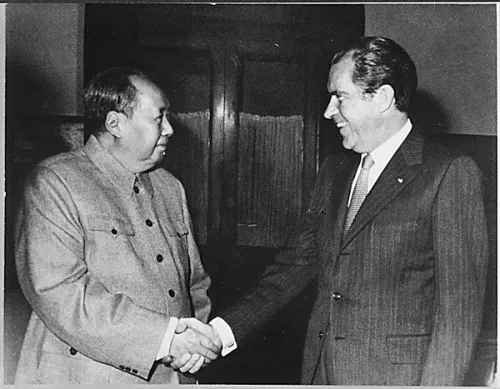Chinese Communist Party Chairman Mao Zedong shakes hand with US President Richard Nixon, February 21, 1972.
Richard Nixon Library, NLNP-WHPO-MPF-8649(01), National Archives Identifier: 194759, https://catalog.archives.gov/id/194759.

Following Nixon's visit to China in 1972 and until the tumultuous events of 1989, China and the United States engaged in a dialogue on, and cooperated in resolving, a range of global issues and problems. For other Digital Archive collections on US-China relations, see Sino-American Confrontation, 1949-1971, and Sino-US Ambassadorial Talks, 1955-1970.
